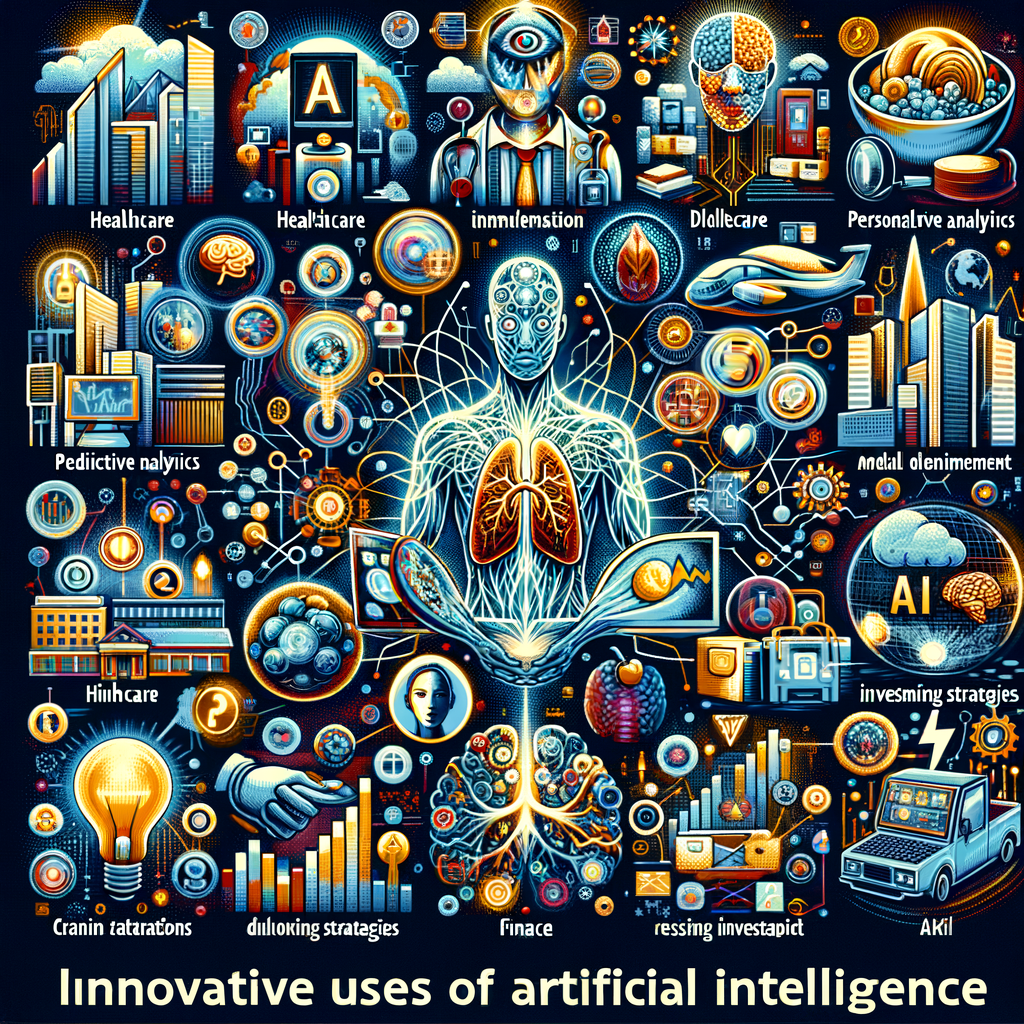Examples of successful AI integrations demonstrate the transformative power of this technology. From healthcare to finance, AI is reshaping industries.
This exploration of real-world AI implementations offers practical insights for businesses seeking to leverage AI’s potential.
Examples of Successful AI Integrations Across Industries
AI’s applications are diverse, catering to the specific needs of each industry. AI implementation strategies vary greatly between industries. Real estate agents have found different AI tools for lead generation while healthcare practitioners employ AI for diagnosing diseases.
Healthcare
AI enhances healthcare efficiency and effectiveness. AI tools aid in early and accurate disease diagnosis, contributing to improved patient outcomes.
PathAI, for example, utilizes machine learning for tissue sample analysis, improving diagnostic accuracy. Virtual assistants streamline hospital operations, reducing unnecessary visits and freeing up nurses for patient care. This allows clinical trial coordinators more time to focus on patients as opposed to spending all of their time on administrative tasks.
Finance
In finance, AI assists in risk management, fraud detection, and personalized customer experiences. AI algorithms analyze financial data, enabling informed investment decisions. An AI platform with algorithms like this are highly valuable to businesses looking for real-time financial analysis for business and market trends.
Retail and E-commerce
AI empowers retailers to offer personalized recommendations. Amazon’s AI engine analyzes browsing and purchasing history, suggesting relevant products.
This personalized approach enhances marketing strategies and fosters customer loyalty. Large language models can assist in generating effective marketing copy.
Manufacturing
AI transforms manufacturing through automation and predictive maintenance. Siemens uses AI for machine monitoring, predicting maintenance needs and minimizing disruptions. Smart factories can streamline operations by tracking supplies, monitoring equipment performance, and forecasting maintenance issues with supply chains and manufacturing equipment. AI algorithms are assisting in predicting equipment failure before it occurs to enhance operational efficiency.
Travel and Transportation
AI enhances safety and operations in the transportation sector. For example, Mobileye’s AI-powered system increases road safety with lane change detection. Using facial recognition technology, law enforcement can employ AI tools to locate individuals within crowds for safety.
Self-driving technology is advancing, with Waymo working on broader implementation, aiming to reduce accidents and traffic congestion. They are making it easier for autonomous vehicles to make efficient routes based on ever-changing road conditions and obstacles. AI software for fleet management can identify efficient routes in order to save on time, resources and expenses related to vehicles.
Social Media
Social media platforms utilize AI extensively. Facebook, Instagram, and others employ AI for trend identification, harmful content detection, and personalized ad targeting, leading to enhanced user experiences.
Learning & Development
AI-powered platforms are revolutionizing education. AI tutors personalize learning experiences, adapting to individual student needs. Businesses use AI tools to make the lives of educators easier and improve student engagement. AI technologies can provide conversational AI with students as well as instructors to make communications better between both groups, thereby keeping teachers abreast of their students’ concerns as well as letting students feel that their instructors understand their academic challenges.
Companies experiment with AI-powered leadership coaching. This provides conversational AI skills training and helps deliver effective guidance in business communications. Examples include customer service interactions and company-wide discussions. Some AI development focuses on creating deep learning tools that can help professionals write stronger messages so their ideas have a bigger impact.
FAQs about Examples of successful AI integrations
What are the 4 powerful examples of artificial intelligence in use today?
Four compelling examples include personalized e-commerce recommendations, fraud detection in finance, predictive maintenance in manufacturing, and AI-driven healthcare diagnostics. These illustrate AI’s ability to improve efficiency, accuracy, and customer satisfaction.
What is a real world example of a company that has successfully integrated AI into their operations?
Amazon serves as a prime example, integrating AI extensively. From personalized product suggestions to warehouse robotics and Alexa, its virtual assistant, Amazon exemplifies AI’s potential. Conversational AI is gaining a strong hold among consumer goods retailers, providing personalized recommendations, marketing information and purchase incentives.
What are the big 5 AI ideas?
The “Big 5” AI ideas are learning, reasoning, problem-solving, perception, and natural language processing. These fundamental concepts form the basis of intelligent systems and AI applications.
How does Starbucks use AI?
Starbucks uses AI to enhance personalization. AI anticipates customer drink preferences, making ordering faster. AI-powered recommendations even extend to baked goods.
This use of AI creates convenience for repeat customers. Eventually, intelligent machines and systems could automate manual jobs like preparing orders.
Conclusion
Examples of successful AI integrations show businesses how AI can be valuable. It is a transformative technology.
Smart implementation can turn AI into an engine for growth and innovation within any organization. This empowers organizations to implement AI solutions that resolve issues, reduce complexities and help them become industry leaders in AI software for their specific sectors.






